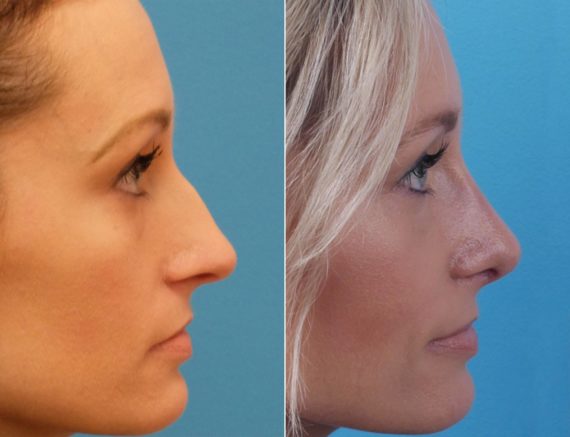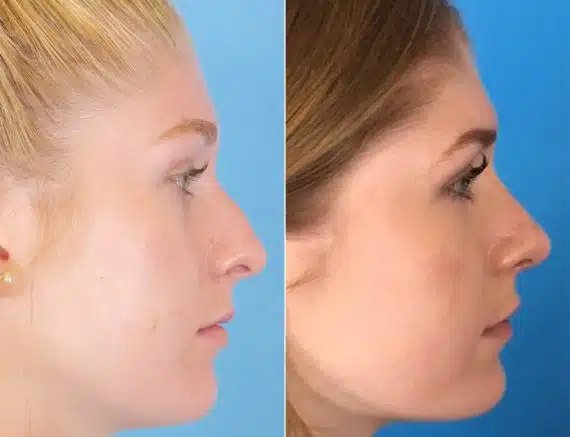Choosing the Right Rhinoplasty Surgeon: What to Look For

Choosing the right surgeon is paramount for a successful outcome. Board certification, surgical experience, and a solid aesthetic philosophy are fundamental cornerstones to consider. Dr. Daniel Becker‘s expertise shines through not only in credentials but also in the nuanced understanding of facial symmetry and patient-centric care.
Patient testimonials, a strong portfolio, and a communicative consultation process speak volumes of a surgeon’s proficiency. Ensuring technological sophistication and comprehensive postoperative support are also critical. As you journey towards selecting a rhinoplasty surgeon, it’s essential to consider these vital factors that can greatly influence your surgical experience and results.
1. Board Certification and Surgeon’s Credentials
When choosing a surgeon for your nose job, it is crucial to confirm their board certification. A board-certified plastic surgeon in Otolaryngology-Head and Neck Surgery, has undergone extensive training in plastic surgery. This level of expertise assures that the surgeon has a strong commitment and proficiency in their field. Patients can check a surgeon’s status by contacting relevant medical boards, ensuring the certification is active and recognized.
Specialized training in nose surgery is also important. Patients should ensure their surgeon has:
- Completed surgical training in facial plastic surgery, indicating a focused study on the nose.
- Participated in ongoing education for advanced rhinoplasty techniques, showcasing a commitment to mastering the latest advancements.
- Joined professional groups for facial plastic surgeons, which require additional standards and professional respect.
These qualifications affirm that a surgeon is an expert in rhinoplasty and has the necessary experience in cosmetic surgery to provide the best results. Patients can trust that a professional with these credentials has the extensive training required to perform at the top of his or her field.
2. Surgical Experience and Expertise
Understanding Surgeon’s Experience
Experience in rhinoplasty surgery is a crucial factor. Surgeons with vast experience are often more skilled because they have performed many surgeries and dealt with various challenges. It’s important to look at their extensive experience, not just the number of years they have practiced.
Assessing Procedure Frequency
Surgeons who frequently perform cosmetic procedures showcase their expertise. High case volumes imply a strong dedication to nasal aesthetics and functional outcomes. It’s beneficial to choose a surgeon who regularly does rhinoplasty and revision procedures, as they are generally more capable of anticipating results and handling complications with confidence.
Selecting the right surgeon with experience in both longevity and specialized practice will help ensure a successful surgical outcome.
Aesthetic and Surgical Philosophy
Finding the Right Rhinoplasty Approach
Each rhinoplasty surgeon follows an approach that blends artistic skills with medical precision. When selecting a surgeon, understand their method: do they focus on structural changes to improve nose functionality, or do they perform significant aesthetic alterations? This insight into their technique can help you predict the potential healing process and results.
Meeting Your Aesthetic Goals
Ensure your goals align with the cosmetic surgeon’s approach during your consultation. Discuss your expectations and how the surgeon plans to achieve them. A positive outcome in cosmetic rhinoplasty is reliant on mutual understanding between you and your surgeon, emphasizing realistic results.
4. Quality of the Surgeon’s Portfolio
When evaluating a surgeon’s portfolio, look at the before-and-after photos to gauge their skill. These should show consistent quality and attention to patients’ unique features. You want to see signs that each surgical plan was personalized. Look for natural-looking results that respect the individual’s ethnic attributes, especially in Closed rhinoplasty procedures.
A varied portfolio suggests a nose job surgeon with broad experience. They should be proficient in using different surgical techniques. Mastery in performing complex surgeries, such as revision rhinoplasty, is another positive sign. The surgical plan outlined should show a strategic and considerate approach, with incisions placed discreetly to get the ideal nose.
5. Patient Reviews and Testimonials
Reading Through Patient Feedback
Reading previous patient reviews provides crucial insights for finding the right rhinoplasty surgeon. Rhinoplasty patients should focus on the quality of comments rather than just star ratings. Feedback from happy patients can offer information on how the surgeon addresses concerns and the care provided.
Analyzing Patient Satisfaction
Steady positive reviews imply that the plastic surgeon upholds a high standard of care. Look for patterns in:
- Surgeon’s attention to detail.
- Postoperative support from the surgical team.
- Satisfaction with the outcomes.
These patterns can help predict the quality of experience one might have with their reconstructive surgeon.
6. Personal Consultation and Communication Style
Importance of an Initial Meeting
An initial rhinoplasty consultation helps build trust and understanding between you and the potential surgeon. It is a chance to discuss your aesthetic goals and any concerns. Face-to-face meetings ensure clear communication so the surgeon understands what you expect.
Communication and Advice
During your rhinoplasty consultation, consider how well the surgeon explains the type of surgery, procedure, risks, and recovery. They should answer questions. An online consultation can also help gauge their communication if meeting in person is not possible. The advice should suit your facial features.
7. Technological Proficiency and Facility Accreditation
When choosing a clinic for a rhinoplasty procedure, consider the technology used. Look for clinics with the latest equipment for better precision and care during the surgical procedure.
An accredited facility is crucial for ensuring a clinic meets safety standards. Hospitals need to comply with strict safety protocols to manage rhinoplasty procedures expertly. Always check that the surgical facility accreditations are valid to ensure the highest safety and professional standards.
8. Postoperative Support and Follow-up Care
Understanding the Support Available After Surgery
After rhinoplasty surgery, it’s vital to have strong support during your recovery. A medical team should monitor your healing with regular check-ups, pain management advice, and guidance on what activities to do or avoid. Everyone heals at their own pace, and tailored advice can help manage your recovery expectations and better your outcomes.
Surgeon’s Policies on Revision Surgeries
Surgeons have different rules about revision rhinoplasty. Before your surgery, it’s important to talk about what happens if you need another surgery due to dissatisfaction or complications. You should understand:
- When you might be eligible for a revision
- The recovery times for additional surgeries
- Any extra costs
- How long to wait for a revision rhinoplasty surgery, taking into account the recovery period from the previous surgery
Knowing these policies can build trust and make the steps toward your desired outcome clearer.
9. Professional Affiliations and Recognitions
Memberships in Esteemed Organizations
Joining respected medical societies and organizations shows a rhinoplasty surgeon’s dedication. A double board-certified surgeon – showing top expertise in more than one medical area, like reconstructive surgery – has a substantial advantage, particularly for complex medical issues like birth defects.
Awards and Honors
Recognitions earned by a medical professional for their accomplishments in rhinoplasty indicate their commitment to great results. Such honors come from peer and patient evaluation. Understanding an experienced plastic surgeon’s medical history of awards can ensure the medical clearance process.
10. Location and Accessibility of the Surgeon
When choosing a surgeon for a rhinoplasty, consider how close their practice is to you. For a crooked nose fix or functional rhinoplasty, you might need to travel, which can add costs for travel and hotel stays. Think about whether you’re willing to travel back and forth for multiple visits before and after the surgery.
The ease of getting to your surgeon affects how hassle-free your follow-up care will be. After the procedure, attending regular appointments is key to making sure everything is healing well. If you have primary rhinoplasties or require further nasal surgeries, living far from your surgeon means more travel.
Identifying a Rhinoplasty Surgeon Who Meets Your Needs
Embarking on your rhinoplasty journey is a pivotal decision, and selecting the ideal surgeon is paramount to ensuring an outcome that aligns with your aspirations. Dr. Becker’s exceptional blend of extensive experience, undeniable skill, and patient-centric approach positions him as a trusted choice for your transformative journey.
Take the next step towards achieving your vision and embrace the confidence that comes with expert and personalized care. Schedule your consultation with Dr. Becker today, and discover how his expertise can craft the aesthetic appearance you desire.

